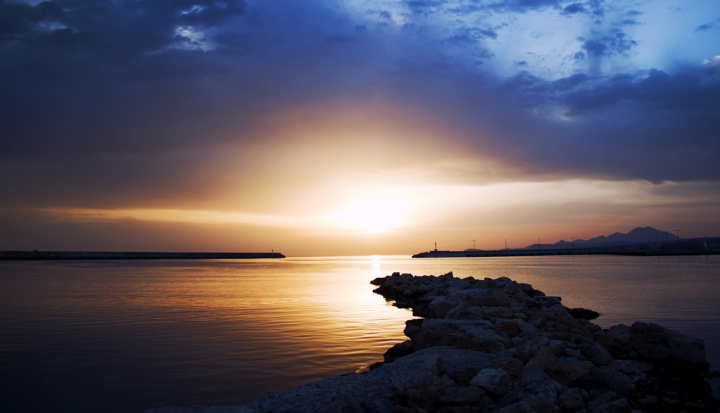The other night I texted my friend and asked him, “Do you ever want to change the world?” The thought had come to me in a burst of inspiration. I often desire to do something, anything, to make a change in the world we live in.
And really, who doesn’t feel this way? In a society where we have to remind ourselves that black lives matter (when this should have been apparent all along), women are still fighting for equal pay, and especially in the wake of the tragedy that occurred in Orlando, where LGBT people—most Latino/a—were murdered at a nightclub, it is easy to want to take one giant broom and sweep the world clean of its problems.
My friend, however, had something different to say.
“Uhh, if I had the power to change the world I’d do it.”
Ever the realist, this one.
I fired back at him, my finger moving swiftly over the screen: “I think anyone can if they really want to. I really want to.”
In that moment, simply and rather dumb as it was, just a text message exchange between two friends, I felt teary-eyed and filled with hope.
I truly did want to change the world.
My realist friend, however, misunderstood what I had meant. In his mind, I wanted to end war, solve famine, or create lasting peace.
Of course we all want to do that. Yet that’s not what I meant. I want to write something that changes how people felt about one another. I want to help people love each other, unconditionally, simply because we are all in this together.
When I explained, my friend once again rolled his eyes at me through words that felt scathing. He thought me foolish. He called me idealistic, just a product of our generation—these beliefs something I would eventually grow out of.
I was frustrated. But despite my friend’s words, I will not abandon the hope that I have nourished for years.
When I am asked what words I would use to describe myself, I always say hopeful first. It is, perhaps, one of my most distinguishing features.
So, it is rather unsurprising I disagree with my friend on a fundamental level.
I have known since high school that hope is what keeps us going. Hope is not foolish, nor is it dumb. Hope is what allows us to face the scariest, darkest things the world has to offer and come across to the other side, triumphant.
Once fostered, hope is a light that cannot be put out. Hope is the new high school or college graduate, preparing to enter a new chapter in their life. Hope is the candle lit in church for a loved one, a prayer offered to God when looking for brighter days.
Why should hope, even the hope reserved for big dreams, be cast out of our lives? Why should a hopeful person be viewed as foolhardy or a likely victim to the pitfalls of realism?
Hope should always remain.
When I was 17, I had a different friend ask me how I was always so positive. He was suffering from depression, it seemed, and could not quite understand how anyone without a perfect life could be happy.
I remember telling him, “I just have hope tomorrow will be better. Usually it is.”
I do not recall if he found worth in this advice or not. In that moment, though, I realized how important that statement is.
No one has a perfect life. Bad things will happen, people will die, and you will fail. But the only way to win is to keep fighting and to keep holding on hope.
Big or small, hope should always be cultivated. Feed your hope with love and optimism, keep it in your heart forever.
Dream big and be hopeful about changing the world, and maybe you will. Or keep it simple and be hopeful the weatherman will be wrong about the cold front and rain in tomorrow’s forecast. Whatever it is, just be hopeful.
I will always make the case for hope. In my eyes, it is the most important thing to have in life’s toolbox. Even if that hope is something that feels nearly impossible, like the hope that one day your words will change the way people treat one another.
And yes, that sounds like quite a long shot. But in the words of a sixth-grade girl with an amazing voice who recently took the stage on America’s Got Talent, “Well, miracles can happen. So, possibly.”
Image: Flickr cc via Theophilos Papadopoulos













